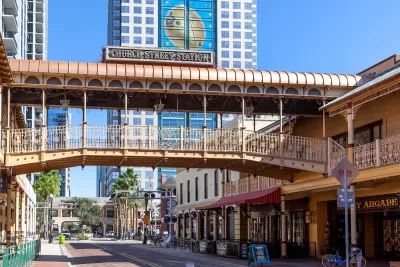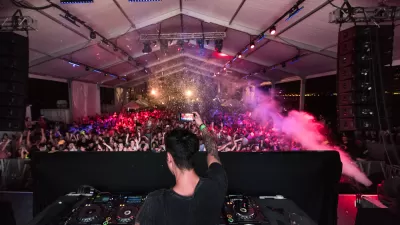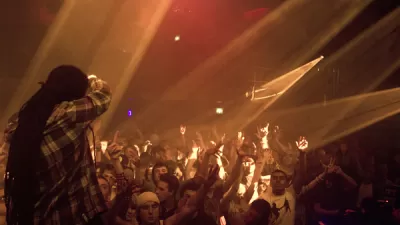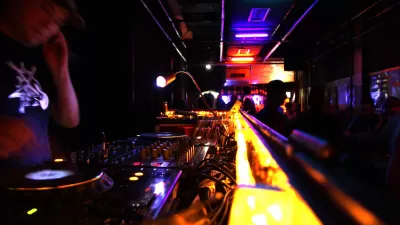The city ended a temporary moratorium on new nightclubs, replacing it with a rule limiting them to roughly one per every city block.

The Orlando City Council voted to end a ban on new nightclubs in downtown. Now, clubs will have to be located 300 feet — roughly one block — apart. Officials say this is designed to promote a diversity of businesses and a mix of retail, restaurants, and other services. “Existing nightclubs that don’t conform to this distance limit would be grandfathered in under the proposal, although they could be prevented from expanding under these rules.”
As Michelle Meredith explains in an article for WESH Orlando, the ban was instated last year after several deadly shooting incidents prompted city officials to articulate a vision for the district’s future. “The new rule aims to create a more diverse and balanced downtown area, ensuring that nightlife does not overshadow other types of businesses.” The decision reflects a shift toward a long-term strategy that encourages more types of retail and services to draw a wider diversity of tourists and locals.
FULL STORY: Orlando City Council lifts ban on new downtown nightclubs

Planetizen Federal Action Tracker
A weekly monitor of how Trump’s orders and actions are impacting planners and planning in America.

Congressman Proposes Bill to Rename DC Metro “Trump Train”
The Make Autorail Great Again Act would withhold federal funding to the system until the Washington Metropolitan Area Transit Authority (WMATA), rebrands as the Washington Metropolitan Authority for Greater Access (WMAGA).

The Simple Legislative Tool Transforming Vacant Downtowns
In California, Michigan and Georgia, an easy win is bringing dollars — and delight — back to city centers.

The States Losing Rural Delivery Rooms at an Alarming Pace
In some states, as few as 9% of rural hospitals still deliver babies. As a result, rising pre-term births, no adequate pre-term care and "harrowing" close calls are a growing reality.

The Small South Asian Republic Going all in on EVs
Thanks to one simple policy change less than five years ago, 65% of new cars in this Himalayan country are now electric.

DC Backpedals on Bike Lane Protection, Swaps Barriers for Paint
Citing aesthetic concerns, the city is removing the concrete barriers and flexposts that once separated Arizona Avenue cyclists from motor vehicles.
Urban Design for Planners 1: Software Tools
This six-course series explores essential urban design concepts using open source software and equips planners with the tools they need to participate fully in the urban design process.
Planning for Universal Design
Learn the tools for implementing Universal Design in planning regulations.
Smith Gee Studio
City of Charlotte
City of Camden Redevelopment Agency
City of Astoria
Transportation Research & Education Center (TREC) at Portland State University
US High Speed Rail Association
City of Camden Redevelopment Agency
Municipality of Princeton (NJ)





























